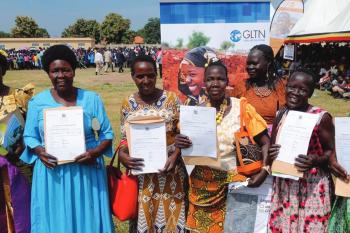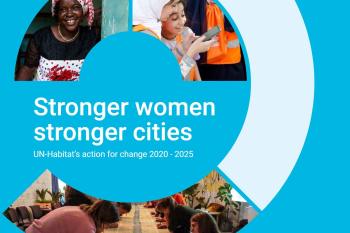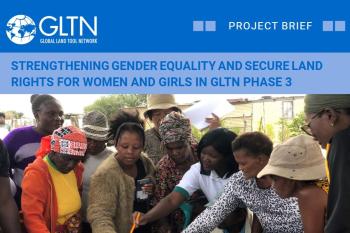
Read More
Gender Strategy for Land-at-Scale Uganda
Women’s Land Rights (WLRs) are fundamental human rights, foundational to gender equality and women’s dignity and instrumental in improving food security, effective climate action, poverty eradicati

This publication provides an overview on the factors to consider and tools to apply in fostering institutional harmonisation in the land sector.
Experiences informing this booklet are drawn from work in Kenya by UN-HABITAT and the Global Land Tool Network. They are complemented by experiences from other sectors (such as water, governance and decentralisation), other African countries and from state as well as non-state actors.
While it is not intended as a blueprint, this guide offers viable approaches to pursue institutional harmonisation processes. It also addresses issues of risk management.
Decision-makers involved in the land sector at any level will benefit from reading this booklet. If you are a representative of a national government, work for bilateral or multilateral implementing agencies and donors, or for a non-state actor, this guide is for you.

Women’s Land Rights (WLRs) are fundamental human rights, foundational to gender equality and women’s dignity and instrumental in improving food security, effective climate action, poverty eradicati

This publication presents a summary of UN-Habitat’s gender equality impact over the past five years, in line with the Beijing reporting cycle.

GLTN’s institutional commitment to gender equality and secure land rights for women and girls has been at the core of its work since inception in 2006.